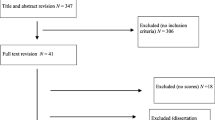Abstract
The reliability and validity of the Japanese version of the Functional Assessment of Chronic Illness Therapy–Spiritual (FACIT–Sp) scale were assessed. This scale was developed in the United States to assess quality of life (QOL) in relation to spirituality. Two surveys were conducted on each of 306 cancer patients. In addition to the FACIT–Sp, the Hospital Anxiety and Depression Scale (HADS) was administered. Cronbach’s alpha reliability coefficient, an evaluation of internal consistency, for the FACIT–Sp subscales ranged from 0.81 to 0.91. There were no significant differences between the patients evaluated using the FACIT–Sp subscale and the HADS subscale with regard to degree of religious feelings. The correlation coefficients between the FACIT–Sp and the HADS depression and anxiety scales indicated a moderate correlation. These findings suggest that the Japanese version of the FACIT–Sp scale is satisfactory in terms of reliability and validity and is a useful tool in the study of spirituality among Japanese cancer patients.
Similar content being viewed by others
References
Wegbereg B, Bacchi M, Heusser P, et al (1998) The cognitive–spiritual dimension—an important addition to the assessment of quality of life: validation of questionnaire (SELT–M) in patients with advanced cancer. Ann Oncol 9:1091–1096
Narrayanasamy A (1996) Spiritual care of chronically ill patients. Br J Nurs 5:411–416
Wyatt GK, Friedmann L (1996) Development and testing of a quality of life model for long-term female cancer survivors. Qual Life Res 3:387–394
McClain CS, Rosenfeld B, Breitbart W (2003) Effect of spiritual well-being on end-of-life despair in terminally-ill cancer patients. Lancet 361:1603–1607
World Health Organization (1983) Cancer pain relief and palliative care; report of a WHO expert committee. WHO, Geneva, p 50
American Psychiatric Association (1994) DSM-IV—diagnostic and statistical manual of mental disorders, 4th edn. American Psychiatric Association, Washington DC
Cella D, Tulsky DS, Gray G, et al (1993) The functional assessment of cancer therapy (FACT) scale: development and validation of the general measure. J Clin Oncol 11:1407–1418
Peterman AH, Fitchett G, Brady MJ, et al (2002) Measuring spiritual well-being in people with cancer: the functional assessment of chronic illness therapy–spiritual well-being scale (FACIT–Sp), Ann Behav Med 24:49–58
Shimozuma K (2002) Cross-cultural adaptation of the quality of life measures for patient with cancer. Stress Sci 17:97–104
Zigmond AS (1983) The hospital anxiety and depression scale. Acta Psychiatr Scand 67:361–370
Kitamura T (1993) Hospital anxiety and depression scale (in Japanese). Seishinnkasindangaku 4:371–372
Aaronson NK, Ahmedzai S, Bergman B, et al (1993) The European Organization for Research and Treatment of Cancer QLQ–C30: a quality-of-life instrument for use in international clinical trials in oncology. J Natl Cancer Inst 85:365–376
Kaasa S, Bjordal K, Aaronson NK, et al (1995) The EORTC Core Quality of Life Questionnaire (QLQ–C30): validity and reliability when analyzed with patients treated with palliative radiotherapy. Eur J Cancer 31A:2260–2263
Fitchett G, Peterman AH, Cella D (1996) Spiritual beliefs and quality of life in cancer and HIV patients. Presentation at World Congress of Psycho-Oncology, New York, October
Brady MJ, Peterman AH, Fitchett G, et al (1999) A case for including spirituality in quality of life measurement in oncology. Psychooncology 8:417–428
Fehring RJ, Miller JF, Shaw C (1997) Spiritual well-being, religiosity, hope, depression, and other mood states in elderly people coping with cancer. Oncol Nurs Forum 24:663–671
Breitbart W (2002) Spirituality and meaning in supportive care: spirituality- and meaning-centered group psychotherapy intervention in advanced cancer. Support Care Cancer 10:272–280
Author information
Authors and Affiliations
Corresponding author
Rights and permissions
About this article
Cite this article
Noguchi, W., Ohno, T., Morita, S. et al. Reliability and validity of the Functional Assessment of Chronic Illness Therapy–Spiritual (FACIT–Sp) for Japanese patients with cancer. Support Care Cancer 12, 240–245 (2004). https://doi.org/10.1007/s00520-003-0582-1
Received:
Accepted:
Published:
Issue Date:
DOI: https://doi.org/10.1007/s00520-003-0582-1



